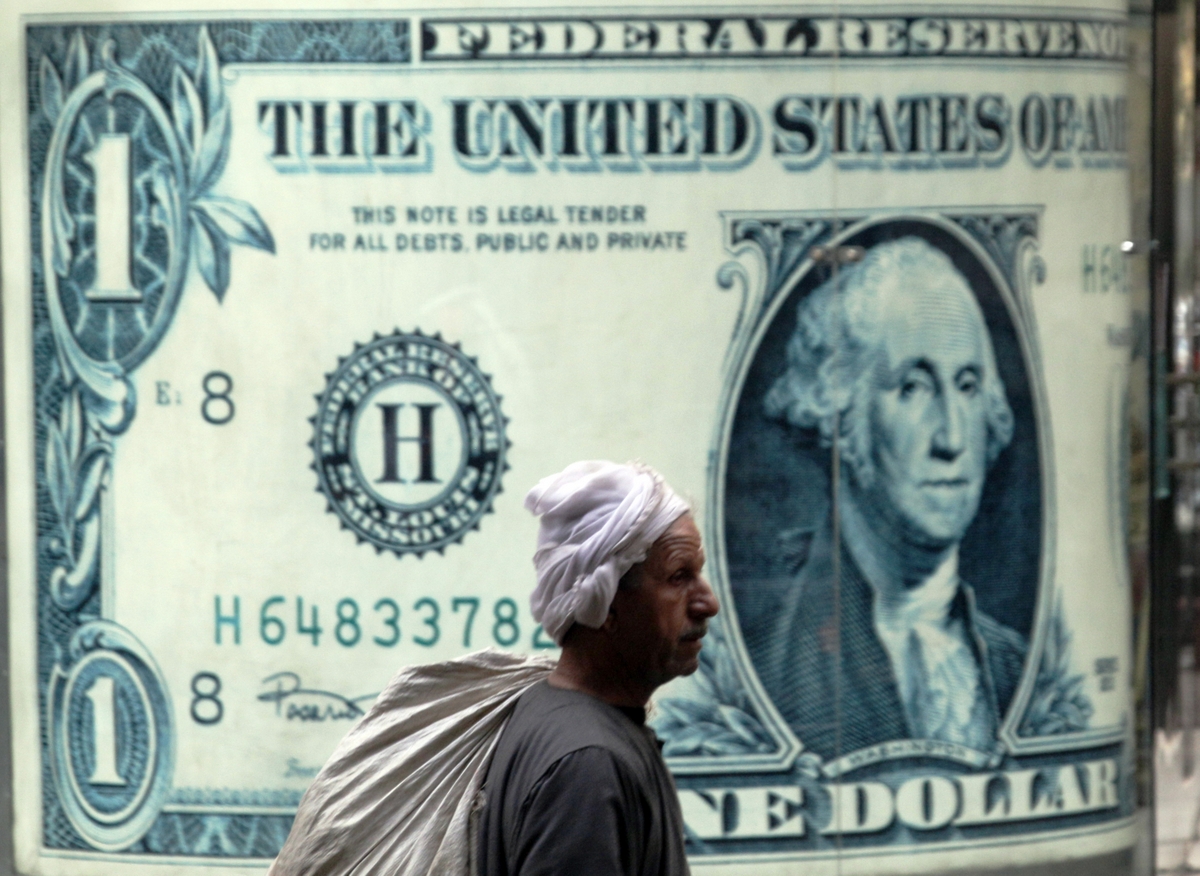The Central Bank of Egypt (CBE) decided on Tuesday to keep the dollar price against the pound unchanged at EGP 7.93, following two consecutive depreciations by 20 piasters on Thursday and Sunday. It is also expected that this exchange rate will remain stable during the next two tenders.
The CBE decided to keep the rate on Tuesday, offering about $40m at a price of EGP 7.93. The dollar is now stable at banks at EGP 7.98 for buying and EGP 8.03 for sale.
The black market for hard currency has been witnessing popular demand influenced by recent cuts by the CBE, where the official rate at exchange agencies is growing closer to that of the black market estimated at EGP 8.60.
In a recent study, Dcode Economic & Financial Consulting stated that the dollar will jump to EGP 8.30 as the pound will depreciate by another 20 piasters before the end of the first half of 2016. Mohamed Farid, Head of Dcode, said that the CBE may not be forced to raise the price of the dollar against the pound during the upcoming two tenders.
Farid believes that reducing the pound is a step in the right direction towards investment; however, he added that the cut is still not enough, where the pound is yet to reach a fair price.
A recent study conducted by The Financial Times indicated that the exchange rate of a number of currencies was only on paper, as the real exchange rate takes inflation into account. This will show that the real value of the Egyptian pound is EGP 9.18 against the dollar, while the rate on paper is EGP 7.83.
Tamer Youssef, Head of the Treasury and Capital Markets Sector in a foreign bank working in the domestic market, said that fixing the price of the dollar against the pound, after increasing it twice, shows the unpredictability of CBE’s next move, and whether it would increase the rate again or leave it unchanged.
CBE had surprised the market last July by raising the dollar price two times in a row, by 10 piasters each time. It then fixed the dollar price for about three consecutive months.
According to Youssef, CBE’s decision regarding the dollar was based on several variables, the most important of which is the decline in foreign exchange reserves in September by about $1.7bn, in addition to the liabilities paid by the bank for Egypt abroad.
“Expectations that the dollar price will reach EGP 8.25 in three months are based on the reports and expectations of local and foreign research institutions,” said Youssef.
He added that CBE will have to stablise the value of the dollar so as to not negatively affect foreign investments that monitor the Egyptian market. The successive decline in the value of the Egyptian pound will postpone investment decisions to await a clearer vision about the price of the Egyptian currency, so that investment costs wouldn’t increase.
“CBE might fix the dollar exchange rate next Sunday to calm the market, or it may increase it again,” said Osama El-Manyalawy, Assistant General Manager of Treasury at a private bank.



